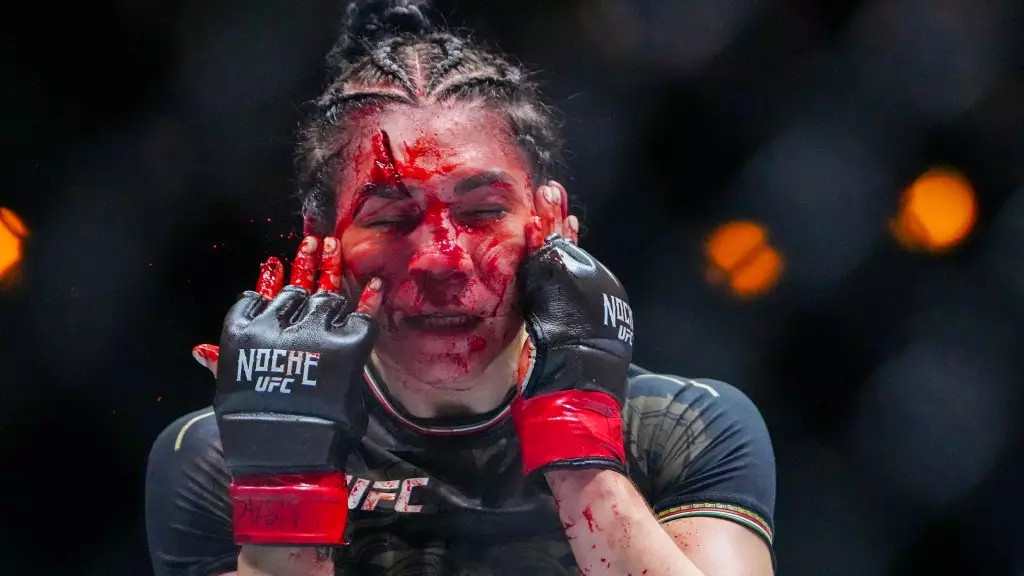At UFC 306, which took place in the vibrant city of Las Vegas, Norma Dumont showcased her resilience and skill by emerging victorious over Irene Aldana in a bout that captivated audiences. The fight, however, was overshadowed by a graphic injury sustained by Aldana, which raised questions about the nature of fight stoppages and the responsibilities of referees. Dumont, with a record now standing at an impressive 12-2 in MMA and 8-2 in the UFC, made it clear that she was well aware of the fight’s dynamics. It was a battle of attrition, and Dumont’s strategic approach allowed her to capitalize on the tenuous state of her opponent.
Dumont’s reflections on the fight revealed her deep understanding of the competitive landscape of the UFC. Acknowledging the presence of seasoned referee Herb Dean, she expressed confidence that the fight would continue despite Aldana’s unfortunate injury. This points to a pervasive issue within combat sports: the role of refereeing criteria when it comes to fighter safety. Though Dean is celebrated for his experience, Dumont’s reliance on his reputation underscores a potential dilemma—should fights continue in such dire physical circumstances? The consensuality of violence is often tested in these moments, where the line between entertainment and safety blurs.
Victorious and riding a five-fight winning streak, Dumont reveled in her success, glowing with pride over her performance. The mental preparation preceding a fight is as critical as physical readiness, and Dumont exemplified this through her pre-fight mindset. In hindsight, calling out Aldana reflects her tactical foresight; she expected a tough fight and relished the challenge. Dumont’s emphasis on the ‘war’ aspect of their clash indicates a fighter fully aware of the psychological stakes involved—where not just skill, but mental fortitude plays a pivotal role.
With the trajectory of her career looking promising, Dumont’s sentiment about the bantamweight division’s future is noteworthy. Her belief in her capability to adapt to any fighting style—be it a grappling-heavy or striking-dominant approach—positions her as a formidable contender. Dumont’s 15 years of training across multiple disciplines including boxing and sambo equip her with a diverse skill set that is increasingly rare to find. As contenders emerge and fall, her declaration of being the ‘best fighter in the division’ serves as both a challenge to others and a statement of intent.
While the UFC landscape rapidly evolves, the question remains: what does Dumont’s win signify for her future? As she contemplates potential matchups, one can only speculate where her path may lead. Nevertheless, her confidence and adaptability suggest she will remain a significant player in the bantamweight division. In a sport that thrives on dynamic and unpredictable outcomes, Dumont’s strategic mindset and performances could very well pave the way for future victories and possibly a title shot in the near horizon. Her journey is emblematic of the fierce competition that defines the UFC, where each fight brings new challenges and opportunities for greatness.

